New security architecture: religious dimensions and ethical criteria
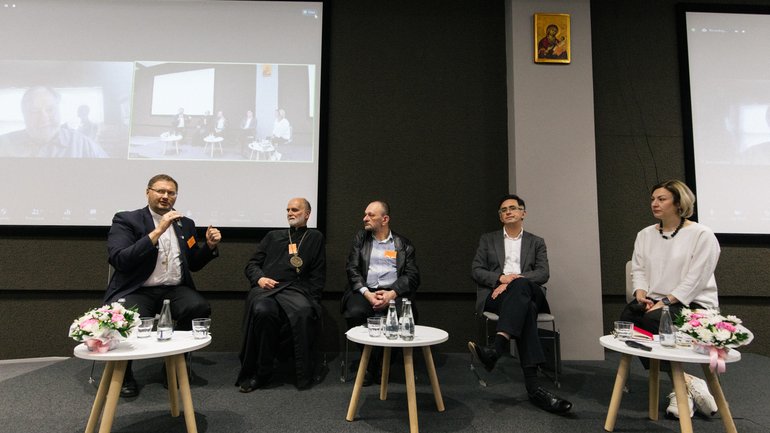
Andriy TRETYAK
In his welcoming address to the participants of the conference the director of the Nanovic Institute of European Studies at the University of Notre Dame, Clemens Sedmak, emphasized how important it is to understand the role of faith and religiosity in the modern world: "Religions are powerful. Religions are powerful since they make statements about human identity and offer identity-conferring existential commitments." That is why religious communities respond to turning points in history, basing their reaction on their own centuries-old experience, and therefore can offer non-standard models and strategies for answers to the crises and challenges of the times. At the same time, as is clearly visible in the example of Russian rhetoric, religiously colored symbolic interpretations can easily be used for the purposes of propaganda and justification of war. Therefore, it is important not only to keep track of the religious aspect, but also to actively investigate it, through research that brings ideas from this sphere into the general discourse. Hence, the final panel discussion of the joint international conference was devoted to the spiritual and ethical principles of ensuring peace and security in Europe and the whole world. It also strove to summarize the discussions of previous days and outline perspectives for further research.
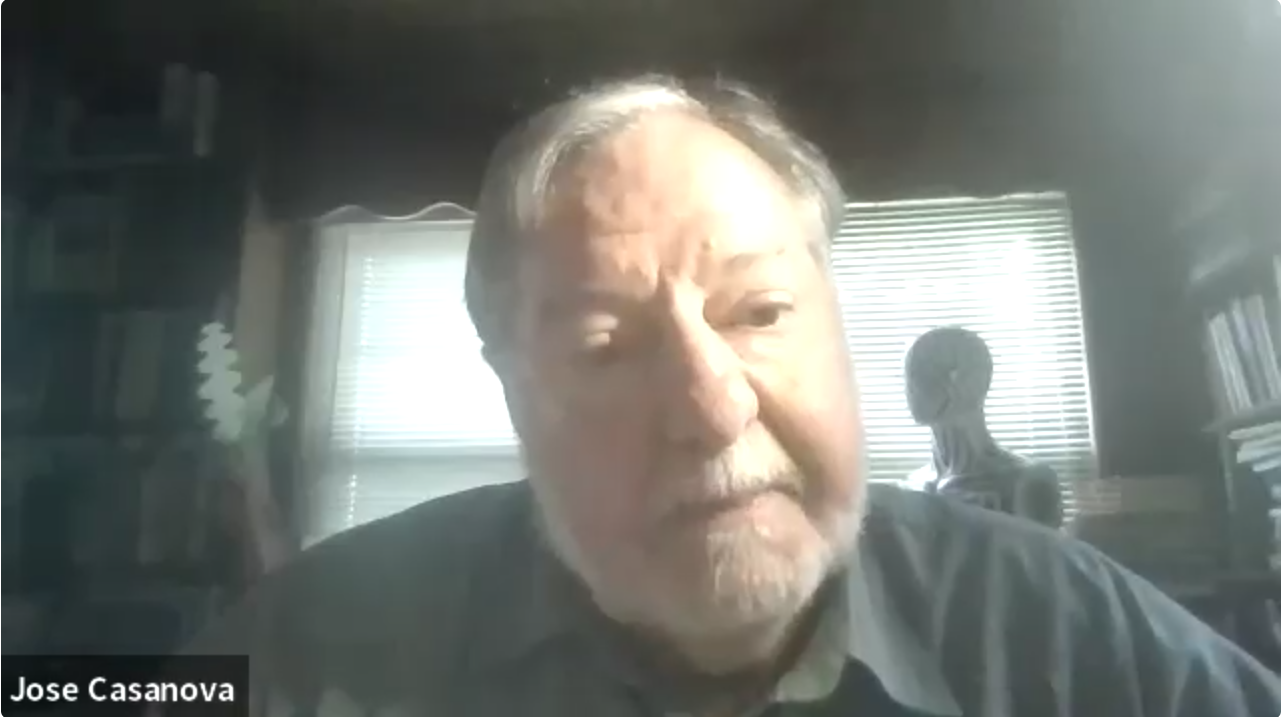
Professor José Casanova, a fellow at Georgetown University’s Berkley Center for Religion, Peace, and World Affairs, in Washington, D.C., pointed out that the cause of all wars lies in the reluctance to acknowledge the existence of the Other. Putin and the Moscow Patriarchate, in particular, do not recognize Ukraine as the Other, as an agent that has the same rights and dignity as other states and nations. According to the researcher, this is a consequence of the imperial ideology of the "russky mir," which claims that Ukrainians are part of the Russian sphere of influence and, together with Russians and Belarusians, are one indivisible whole.
Failure to notice the importance of recognizing the Other as different but equal affects not only Russia, but also Europe, which did not see Ukraine as equal to Russia, while at the same time different from it. That is, Europe did not fully consider the right of Ukrainians to be a separate nation. Fundamental changes in this regard began to appear after the Russian full-scale invasion, so we can talk about a turn in the perception of Ukraine in the world. Finally, Ukrainians were recognized as free and independent subjects who have the right to their identity, political culture, and future. This change occurred not only among politicians, but also in academia, particularly among specialists in Eastern European studies who for a long time looked at Ukraine from the perspective of Russian colonialism.
Global Christian centers also had problems with recognizing the separate identity of Ukrainian Churches. They often perceived the Ukrainian religious environment through the lens of the Russian Orthodox Church's claims and the alleged encroachments on its so-called "canonical territory." The speaker pointed out that it took a year of full-scale war for the Vatican to begin establishing contacts with the Orxthodox Church of Ukraine. According to Casanova, it is strange and incomprehensible that the Apostolic See hoped to achieve results in peace initiatives, while ignoring a large part of the Orthodox community of Ukraine.
At the level of inter-church relations, the Russian side constantly resorted to manipulations. For example, it insisted on the exclusion of all Ukrainian Churches from the dialogue; and the Vatican previously agreed to this. In order to prevent the ROC from leaving international forums, the Apostolic See indulged them and have not invited representatives from Ukraine who were "unpleasant" to the ROC: neither "Uniates" (UGCC) nor "schismatics" (Orthodox who did not belong to the UOC-MP), or "heretics" (Protestants). Professor Casanova emphasized that after the collapse of the USSR, the dynamics and vectors of the development of religious life in different former Soviet republics were not the same. For example, in Russia, a quasi-state religion was formed; but in Ukraine both religious diversity and religious freedom were developed and preserved.
In his speech, the professor emeritus also emphasized that we should not completely abandon the theory of just war, so as not to become peacekeepers without justice. The example of Ukraine shows that the right to self-defense, to ensure one's existence, and thus the right to life in general, requires constant active protection. And this protection is inextricably linked with the defense of the right to freedom.
In the 1960s the Catholic Church accepted democracy as the best possible political model for preserving the freedom and dignity of the human person. In the last 20 years, however, we can hear a lot of skepticism in Catholic circles about the level of what democracy really can do; and the Church itself has taken an equidistant position regarding any political systems, being equally critical of all of them. Hence, he expressed his hope that the war in Ukraine will be a stimulus to rediscover the importance of the principles of democracy with an emphasis on the principle of the rule of law. The freedom of the Church is guaranteed by ensuring and respecting the freedoms of individuals. It is true that democracies are not always able to ensure this; but authoritarian regimes are inherently incapable of ensuring human rights, both nationally and internationally.
Finally, the scholar emphasized the need to listen and hear the victim's voice first. Attention to the poor, weak, and marginalized is justified and extremely important. Therefore, in his opinion, the principle of realpolitik should either be rejected or strongly reconsidered at the level of international relations.
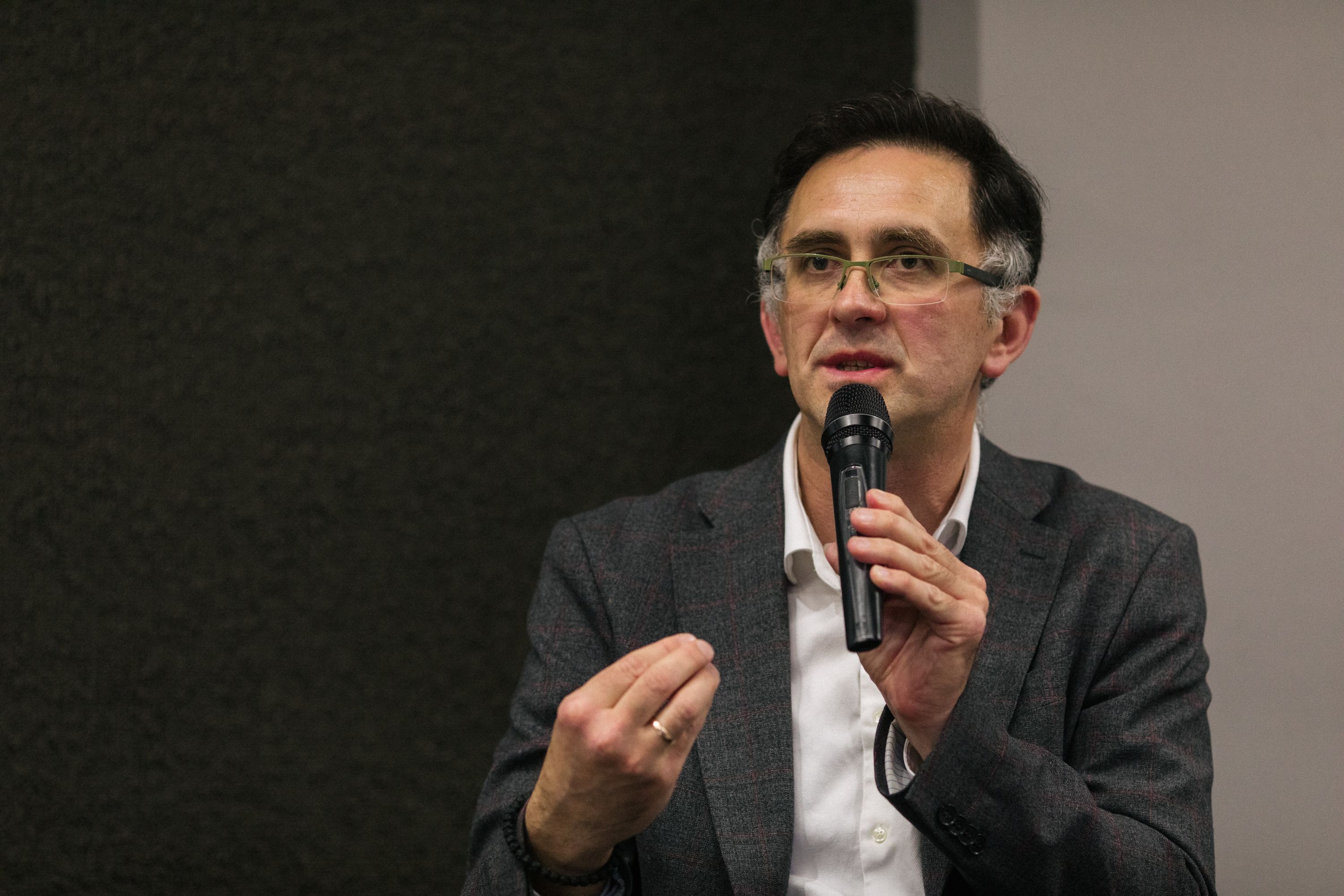
For his part, Volodymyr Turchynovskyy, director of the International Institute for Ethics and Contemporary Issues at UCU, first drew attention to the fact that today Ukraine has many dimensions. Hence the answer to the question, "What is Ukraine?," requires a comprehensive approach that would take into account all perspectives and contexts.
Later, he focused his speech on the search for the foundations of security. According to him these foundations should be sought in right relationship. The moral aspect of war is also important, because a moral victory will give hope for building a just world. It is justice that can become a light that will show the way for the future. Analyzing the causes of the war in Ukraine, the researcher drew attention to the fact that it was the unsolved moral problems after World War II, as well as after the fall of the USSR, that created the conditions where a new war in Europe became possible. Unpunished evil and undenounced ideologies have a great chance to explode with new crimes in the future, which is clearly visible in the example of Ukraine. Therefore, future peace for Ukraine will always be fragile and unstable, unless this is taken into account.
Turchynovskyy also recalled George Weigel's words that it is faith that leads to courage, which is extremely necessary in the fight for freedom, in achieving and preserving peace. Also, all kinds of plans and hopes about the future are unattainable without taking into account modern challenges, such as ecology or artificial intelligence. These factors should be weighed seriously today and not postponed for later.
Toward the end of his presentation, Prof. Turchynovskyy warned against the dangers of outsourcing responsibility, of having someone else to take care of our own problems. A very similar case happened with the issue of security, when people believed that someone else could take care of this instead of them. Therefore, awareness of everyone's personal responsibility for the world and its future must be brought back into the general discourse. Here, the idea of a gift can be helpful, as it is able to tear a person out of the currently prevailing egocentric worldview.
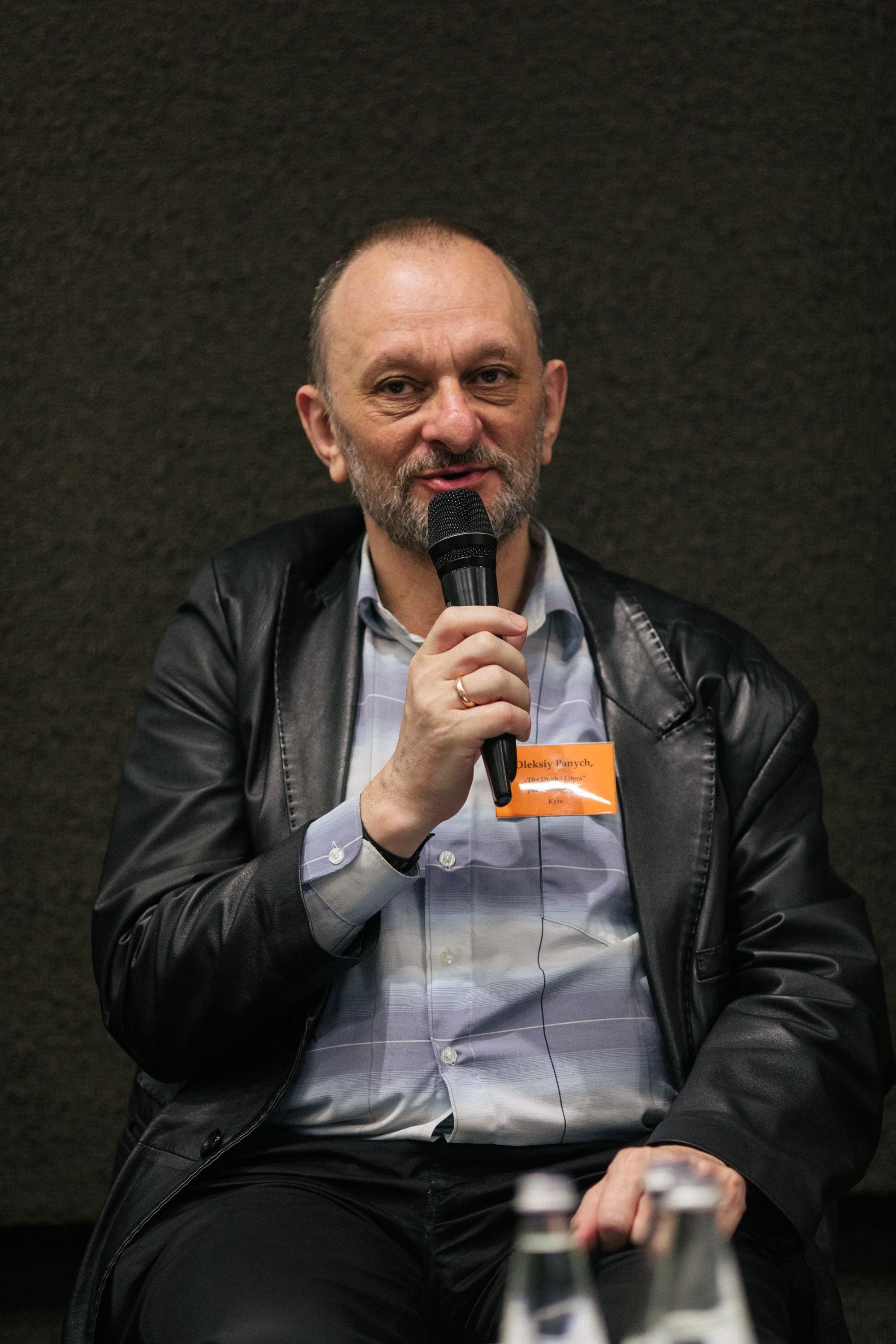
Oleksiy Panych, researcher at the Kyiv publishing house "Dukh i Litera" (Spirit and Letter), also a philosopher and translator, built his speech around the statement that the war in Ukraine is a limit case in relation to the idea of reconciliation. Therefore, two questions arise: What is it about Russia that makes this war a limit case? What exactly is the challenge of the war in Ukraine in the context of the idea of reconciliation such that this idea cannot be applied as usual?
According to him, the pattern of reconciliation, which is widespread in the Christian context and after World War II gained popularity in politics, is based on the "ontology of good" that takes its origins from the Bible and ancient philosophy. This ontology is built on the premise that the whole world is intrinsically good and simultaneously strives for good. The question arises, however, where does evil and cruelty come from? In the animal world, the answer is the constraints imposed by nature. Indeed, in this world reconciliation between the wolf and the sheep is impossible: either the sheep will die after being hunted by the wolf, or the wolf will starve of hunger.
Humans do not have such biological predeterminations and that is why ignorance and intellectual errors are traditionally named as the source of evil. Therefore, enlightenment alone is sufficient to correct human behavior; however, this theory is difficult to translate into practice. It is especially unproductive to try to conduct a dialogue with modern Russia on these bases. Putin and the Russian elite are clearly aware of their actions and are convinced that they are acting in the interests of their empire. In the logic of empire, the “good” can be realized through the expansion and multiplication of new lands. In the Russian context, this leads to a dilemma: either Russia will absorb Ukraine and continue its existence, or Russia will perish. The origin of this logic is the Russian culture, which was created as a combination of the spiritual culture of the West with the legal and political culture of the East. This combination to a large extent determined the essence of the Russian Empire’s self-understanding. In order to change, Russia needs a more liberal legal and political culture; and this will inevitably lead to the collapse of the empire. That is why, for Panych, it is possible to imagine many small liberal countries on the territory of present-day Russia, but not one liberal Russia.
Another problem pointed out by the scholar was the issue of reconciliation itself. In his opinion, Russia acts as an organized criminal group; it has its own interests and its own specific idea of what is good. Yet, the realization of this good is contrary to the good of the rest of the world. In present times, we are dealing with a group of serial killers and their desire to achieve what they believe is good for themselves. Therefore, negotiations for reconciliation are possible only on an individual level and only when these individuals break their connection with the group. But there can be no reconciliation with an entire criminal association. Therefore, the speaker concluded, one should work to dismantle this immoral and inhuman association, and not try to conduct a dialogue with it.
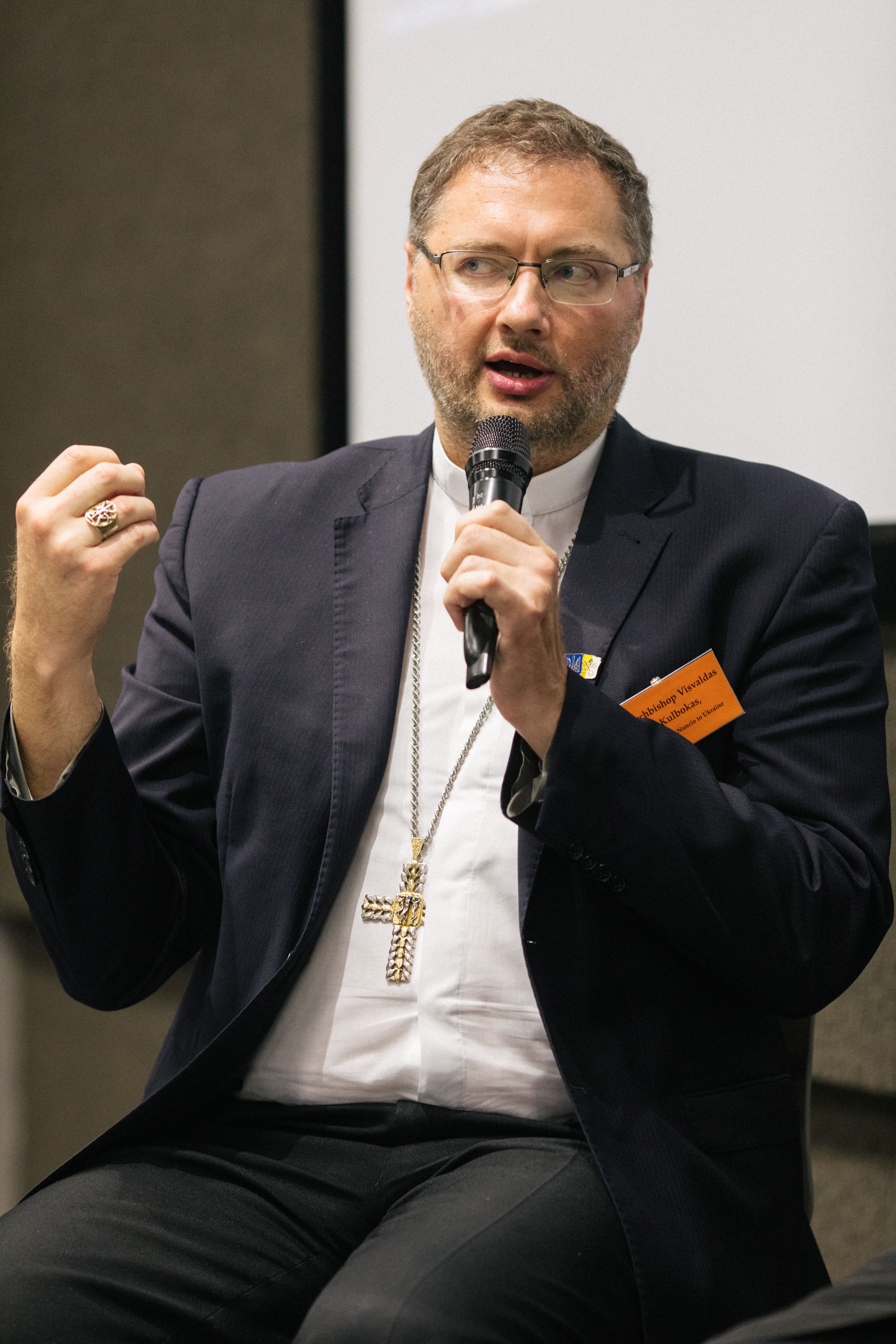
In his speech, the Apostolic Nuncio to Ukraine, Archbishop Visvaldas Kulbokas, drew attention to the fact that stopping the enemy means, in some aspect, doing good to him as a neighbor, because in this way we do not allow him to commit a sin. He also emphasized the importance of empathy in today's world. In his opinion, such solidarity and compassion manifests itself primarily in being on the victim's side. Otherwise, there is a danger of remaining within the framework of theoretical and abstract "love for all" and while actually being detached from real problems. This is always important to keep in mind, and even more so in wartime.
In addition to the importance of direct experience of contact with living people, the Nuncio emphasized that it is not enough just to speak the truth, one must also work to prepare the soil on which these seeds of truth will fall. Hence, spreading the truth about the war in Ukraine is similar to preaching the Gospel. According to the speaker, Ukrainians have quite simple and unequivocal answers to the nature of this war, which are not always easily understood by foreigners: it is primarily about the protection of one's native home and one's right to life. As an example from the religious sphere, Archbishop Kulbokas even mentioned the existence of the Gendarmerie and the Swiss Guard in the Vatican. This can be interpreted as a message that protection from aggressors is needed, as well as actions aimed at preventing aggression. The words of papal appeals to Ukrainians should also be understood in this key. They need protection, they have a right to it and cannot rely only on the words and goodwill of others. The teaching of the Catholic Church clearly speaks about this.
It is necessary to be persuasive when formulating and spreading ideas; and therefore, according to the Nuncio, the role of universities and the academic community is very important in this respect. For example, it is worth talking about the need for an international network of academic cooperation that would promote European identity, which would be very helpful for Ukraine today. In addition, the papal diplomat considers intellectual efforts to build a dialogue with Russian society in modern circumstances to be unproductive, since, in his opinion, there is no civil society in Russia.
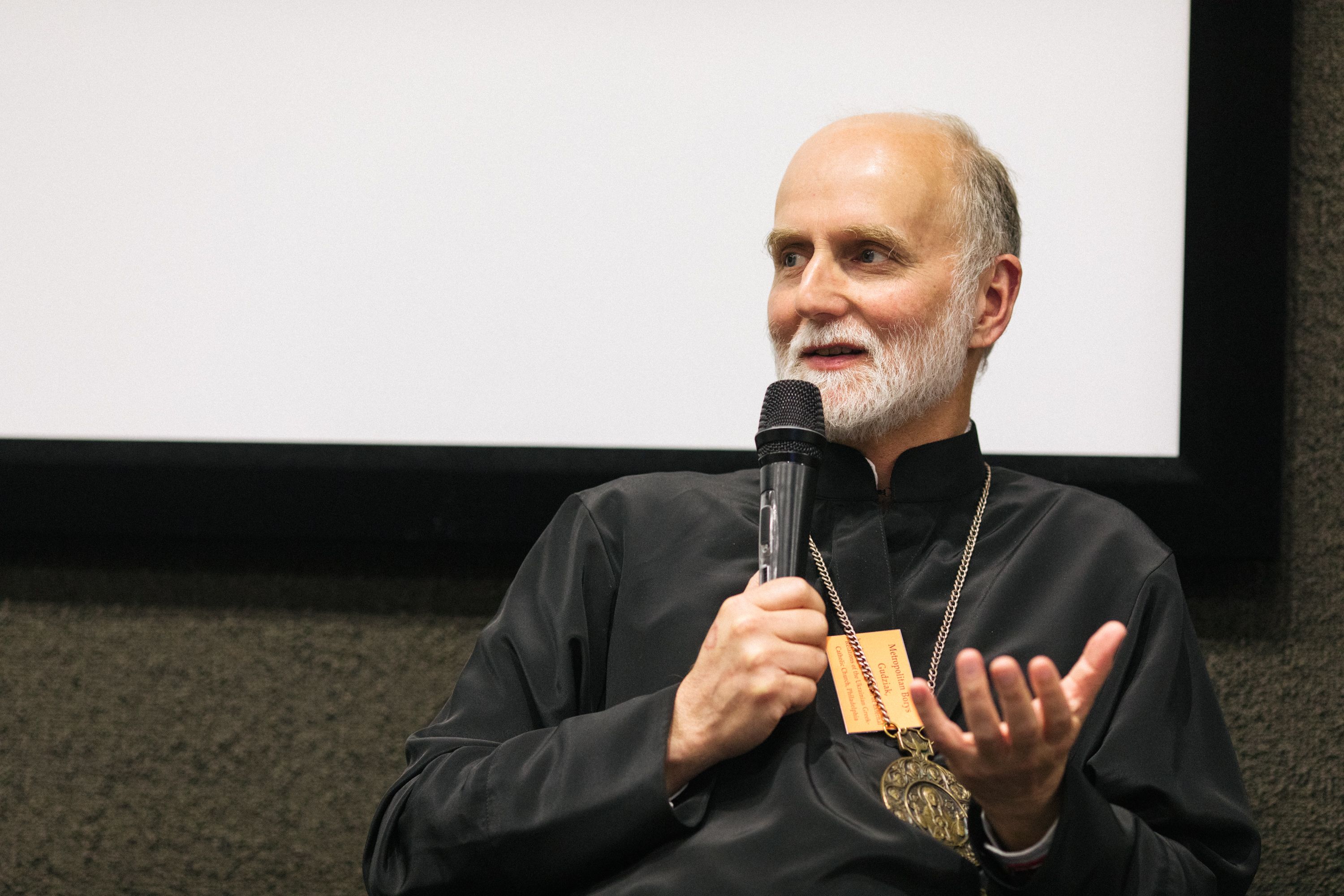
Metropolitan Borys Gudziak, president of UCU, began his reflections with an analysis of the Holy Scriptures. In the Bible, from the very beginning, you can find many examples of evil and cruelty, which is the result of the Fall. A person reaches out and greedily takes for himself, forgetting that everything is a gift. So, the question arises: is it possible to ensure peace in this sinful world? It is impossible to give a clear affirmative or negative answer; however, one can try to work in the direction of building sustainable peace. Success can be expected only on the condition of constant attention to the Creator and the Word of God, as well as serious acceptance of criticism and constant work on one's own mistakes. The speaker called for careful attention in today's times, because many common concepts and approaches are built on illusions and ideologies that lead us astray from reality. The postmodern era is very anti-hierarchical; it is dominated by internal skepticism towards structures. This is widely used for manipulation and spreading propaganda.
For Archbishop Borys, an important aspect of the Russo-Ukrainian war is a clear and visible distinction between good and evil. In today's times of total deconstruction and the dictatorship of relativism, only "points of view" are permissible. Therefore, the question arises whether ethical and moral principles are even possible today. Ukrainians firmly say: there is good and there is evil, and I am ready to give my life for good. This determination and confidence can be helpful for the whole world to rediscover the importance and significance of values. People in Ukraine are ready to sacrifice their own lives because they see something bigger that is worth all their struggle. In particular, it is a sense of community: fragile, crippled, but worth fighting for. This fight is accompanied by fear, but hope and trust in the great God help to overcome it. After all, if the problem of fear is not taken seriously, the chances of peace are slim. Martyrs Borys and Hlib can be an important example for today, according to the speaker. Their testimony of love has global significance. Their story shows that it does not always take a long time to do a significantly valuable act and therefore become a role model.
In the final part of the panel discussion, participants agreed that today's war between Russia and Ukraine is a wake-up call for the whole world and its security system. There is an urgent need to reform the UN. At the same time, this is not only a task for the West, as it is necessary to be open and invite the whole world to solve global problems jointly. That is why Pope Francis's call for a culture of encounter is very important. This is the only way to establish communication with the global South, so that Ukraine’s voice is heard there as well. Also, in this context of building bridges, interreligious and interconfessional dialogue is important, which would be a safeguard against closing in on one’s own communities. To make global peace sustainable successfully includes readiness for new discussions on security issues and the acceptance of everyone willing to participate in building global peace.
Another, but no less important summary of the discussion was Abp. Borys’s conclusion regarding the importance of attention to the Other, to the neighbor, thus following the example of the Holy Trinity, since isolation and self-limitation pose a great threat. The mystery of the Other means not to be afraid to meet with him, to respect his dignity and hear his voice. Also, the Other helps to discover the importance of paying attention to one's own person, in order to keep peace in one's own heart. Without this foundation, it is impossible to have a conversation about peace at the higher levels. An example here can be the history of the Roman Empire. It was changed by the good news about love, which eventually its citizens took very personally. It did not happen immediately, but the changes were radical and fundamental.









